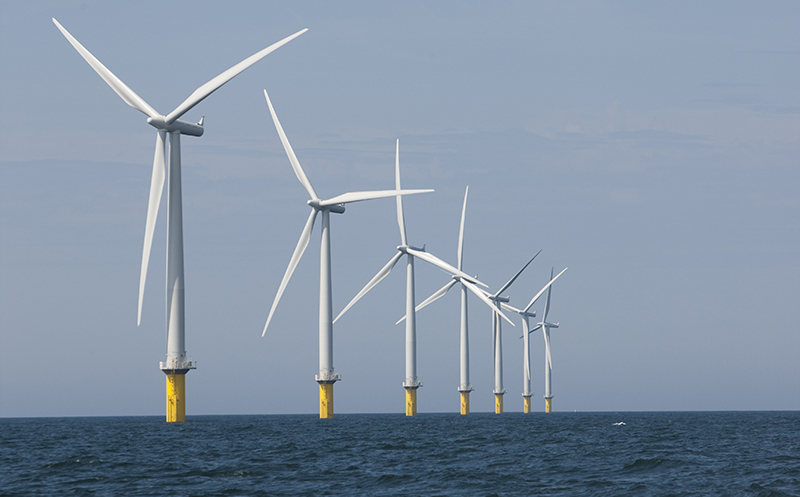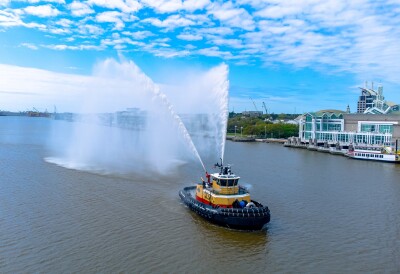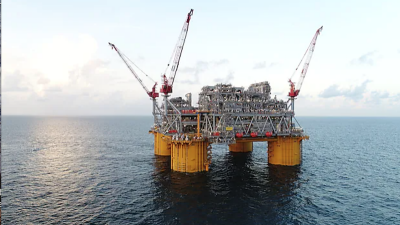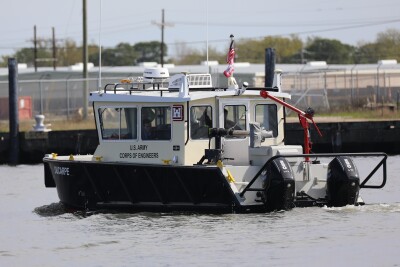That’s down from a peak of 84% in polls taken between 2008 and 2011, when the Obama administration began setting the stage for Mid-Atlantic wind energy leasing. The support drops sharply to 45% if residential electricity rates were to go up because of wind investment.
“This could be tricky for clean energy advocates. Support for wind energy could drop once New Jersey ratepayers become aware of any development costs they will have to bear,” said Patrick Murray, director of the Monmouth University Polling Institute in West Long Branch, N.J. “However, they could become more willing to shoulder some of that investment if they are convinced it will lead to real environmental benefits."
The prospect of wind energy plays well politically in New Jersey right now, where Atlantic exploration for offshore oil and gas drilling and building new nuclear power plants would be much less popular, according to the poll results.
“There is broad, bipartisan agreement that moving forward with offshore wind projects should be a priority. If New Jersey achieves Gov. Murphy’s ambitious goal of generating 3,500 megawatts of electricity from offshore wind by 2030, it will put the state on a path to a green energy future," said Tony MacDonald, director of the Urban Coast Institute at Monmouth University.
About half of Garden State residents (48%) say significantly increasing the amount of offshore wind energy should be a major priority for New Jersey over the next 10 years. Another 34% say it should be a minor priority and just 11% say it should not be a priority at all.
Two-thirds (66%) of Democrats say it should be a major priority. They are joined by 43% of independents and 32% of Republicans who say the same.
For now, New Jersey residents appear optimistic that developing wind energy off the state’s coast will not drive increases in their own electricity rates, according to the poll results.
In the short term, just 19% expect that their rates would go up for the next few years, while 35% say their rates would actually decrease and another 35% say they would stay the same.
Over the long term, just 15% expect their rates would be higher ten years from now, while a majority (52%) expect them to be lower than they would be if no new wind farms were developed. Another 24% expect to see no change in their rates a decade from now if the state develops more wind energy.
Younger residents under age 35 are more optimistic about their rates going down in the long run (65%) than are those aged 35 to 54 (52%) or those 55 and older (41%).
People who earn over $100,000 a year are more likely to believe their electricity rates will decrease (60%) in the long term if more wind energy is developed than are people who earn $50,000 to $100,000 (50%) or people who earn less than $50,000 (49%).
A majority of New Jerseyans (58%) would support developing offshore wind energy even if their electricity rates increased, if they also felt this would significantly reduce carbon emissions and the reliance on fossil fuel.
Most Democrats (74%) and independents (55%) would favor wind farm development under these circumstances, but few Republicans (36%) would join them. A majority of all age groups favor developing emissions-reducing offshore wind farms whose initial costs they would have to share, but those aged 18 to 34 (66%) are more likely to feel this way than are those aged 35 to 54 (56%) or those aged 55 and older (53%).
In the nation’s most densely populated state, environmental protection policies are popular, and the poll found a majority of 56% believe that protecting the environment should be a more important priority for U.S. energy policy right now while 25% say the priority should be keeping energy prices low.
“This opinion has not changed from a 2010 poll,” according to the institute’s report. There is also a clear split along political persuasions, with 71% of self-described Democratic voters and 58% of independents prioritizing the environment, with 40% of Republicans saying the policy priority should be keeping energy prices low.
The Trump administration is continuing the Obama-era “all of the above” energy policy by supporting offshore wind development. But the administration’s push to reopen the Atlantic for oil and gas exploration gets just 30% support in the new poll, while support for new nuclear reactors trails at 26%.
“There seems to be a recognition that the long-term economic and environmental benefits of investing in clean, renewable energy sources outweigh any short-term costs. At the same time, New Jerseyans no longer seem willing to accept the environmental risks of offshore drilling and nuclear power as a price for lowering their energy costs,” said MacDonald of the Urban Coast Institute.
The telephone survey sampled 604 adults between Feb. 8-10, with a margin of error of 4%, according to the institute.





